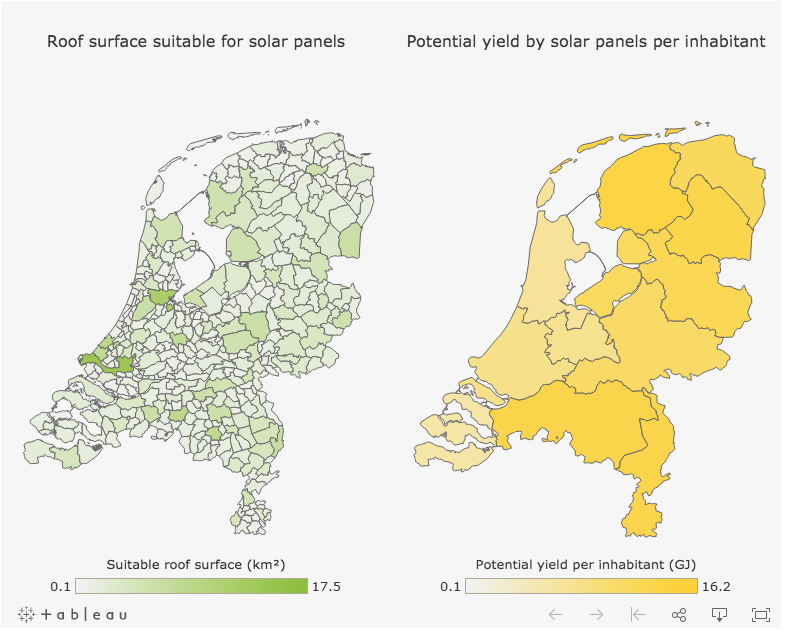Analyzing the potential of rooftop solar in the Netherlands, Deloitte has found that 892 km2 of roof surface across the country has the potential to host solar panels, which is equivalent to 125,0004 soccer fields. At this point, however, only 4.4% out of a total nine million buildings are home to solar PV systems.
Under the optimum scenario, where all available surface is used, the rooftops could accommodate 270 million panels, the output of which could cover 98% of total Dutch household electricity needs.
However, at this stage, this is only a remote possibility, given that only around 2% of Dutch electricity demand is generated by solar.
According to the Dutch Central Bureau of Statistics (CBS), with cumulative capacity sitting at 2.7 GW, following the largest ever annual growth – 700 MW – in 2017, solar accounts for just 1.75% of the country’s power production.
The U.K. professional services network has also calculated that the optimal rooftop solar deployment would reduce electricity production-related CO2 emissions by 63%, which would reduce total carbon emissions by 20%, from current levels.
Again under the best case scenario, based on current Dutch energy consumption and production, the share of energy from renewable sources would reach 16%.
Popular content
Additionally, installing solar panels on every suitable roof would not only reduce carbon emissions, but could also inject up to €100 billion in the Dutch solar industry and create extra jobs, says Deloitte.
Discussing the main challenges to this, Deloitte notes that the potential of the industry is to grow from the current amount of six petajoules (PJ) to 217 PJ. However, with an assumed growth rate of 40% year on year, installation of the total amount of solar panels would still take 10 years to complete.
According to Deloitte, other challenges to the rooftop solar uptake are government incentive programs, energy grid surplus, and energy storage.
Currently, net metering for residential and commercial PV, which has seen its share decrease over the last two years, is still one of the main drivers of the Dutch market.
This content is protected by copyright and may not be reused. If you want to cooperate with us and would like to reuse some of our content, please contact: editors@pv-magazine.com.



By submitting this form you agree to pv magazine using your data for the purposes of publishing your comment.
Your personal data will only be disclosed or otherwise transmitted to third parties for the purposes of spam filtering or if this is necessary for technical maintenance of the website. Any other transfer to third parties will not take place unless this is justified on the basis of applicable data protection regulations or if pv magazine is legally obliged to do so.
You may revoke this consent at any time with effect for the future, in which case your personal data will be deleted immediately. Otherwise, your data will be deleted if pv magazine has processed your request or the purpose of data storage is fulfilled.
Further information on data privacy can be found in our Data Protection Policy.